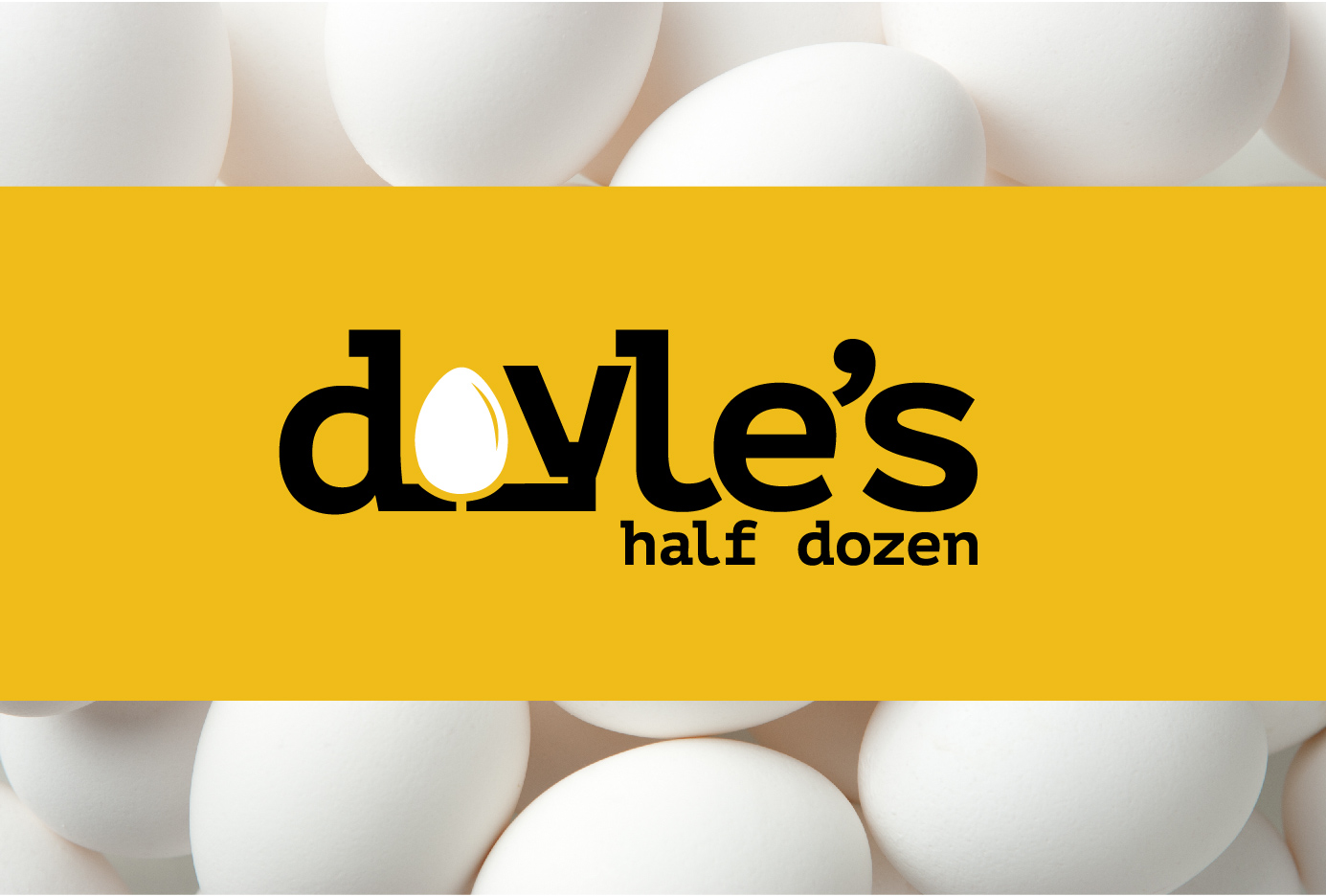
by Caleb Moore | Sep 18, 2019
Ideas have consequences. We are now reaping the consequence
of certain ideas that have been a part of our society for so long we take them
at face value. Yet when the face of culture changes, these values change, and we
are left scrambling to make sense of how to address these issues.
This topic is one I have written and spoken about many times, but I want to
make one more attempt to show how we can bring healing to those who struggle
with issues regarding their sexual identity. I recently listened to an
interview with a Christian woman who struggles with gender dysphoria. Gender
dysphoria is the clinical name for what most people today know as transgender.
In her talk, she repeatedly commented on the fact that she
never felt like she fit the typical world understanding of what it meant to be
a woman. She would rather play contact sports than shop for clothes or wear
makeup. She was often referred to as a tomboy growing up. This is a problem that the Gospel can really
help.
In Genesis, we are told that God created them male and
female. What it doesn’t say is just as important as what it does say. It
doesn’t say Adam was strong and was created to like football, and Eve spent her
evenings sewing fig leaves for clothes. The reason it doesn’t say anything
about how they behave is because gender is descriptive not prescriptive.
What do those two words mean? Descriptive is just describing their gender and nothing more. If it
was prescriptive then it would be
followed by certain traits that we are designed to adopt. Lots of descriptive
Bible verses are incorrectly used in prescriptive ways. For example, Jer. 29:11
is a very popular verse. It reads, “For I
know the plans I have for you declares the Lord, plans not to harm you but to
give you a hope and a future.”
This is a very nice verse, but it is descriptive. It’s God
promising a certain group of people a certain thing. This thing that God
promises is not applicable to all people at all times. How do I know this? It’s
easy. This verse could not apply to Jesus and his disciples. Jesus and his
disciples both had plans that included them being harmed. Yes, part of God’s
plan for his disciples and himself included their own personal harm. They were
beaten and sometimes killed.
So you can see how troublesome it would be if they tried to take that verse
from Jeremiah and make it about them. Eventually, it would leave them confused
when they faced hard times because it went counter to the promises they claimed
for themselves. In the same way, we need to be aware that gender is descriptive
not prescriptive.
When a transgender woman says she feels like a man on the
inside, what she means is that she doesn’t fit the typical worldly view of
femininity. The pressure that the world put on her to conform is not a biblical
pressure. Very rarely does Scripture suggest that a man or woman should act a
certain way, and when Scripture does, it has to do with how we interact with
each other, not with what kind of personality we should have.
Christians should be sounding the alarm against
sexual stereotypes because we now see just how much harm they cause. They have
drawn lines in the sand and when people don’t fit certain molds we reinforce
those stereotypes instead of showing them that freedom can always be found in
Christ alone.
As the culture flails about like a fish out of water, may we have the attitude
of Christ who looked beyond worldly labels to the heart of each person, and
then offered them a place to find rest for their souls.

by Brian Hobbs | Sep 16, 2019
People in Evangelical Christian
circles expressed heartbreak, shock and sadness at the recent news of the
apparent suicide of Jarrid Wilson, a young pastor and advocate for mental
health.
The suicide epidemic is real. Everyone
from mental health experts to Christian leaders who know God’s Word forward and
backward, seem perplexed as to what is accelerating this trend.
I will allow those wiser and more
knowledgeable people to dissect the problem and suggest solutions. Contrary to
Netflix damaging series “13 Reasons Why,” today I am offering 13 reasons why
life is worth living.
13. We are not our
own. If we live life as though it’s ours to use, we often will make
destructive choices. If instead we live as though we belong to God, we are more
apt to live wisely, with eternity in mind. Our lives are not our own (Rom.
12:1-2).
12. Your life is
valuable. Growing up, the self-esteem movement told me how special I was.
While I since have learned that I am not all that special, I learned an even
greater truth: I am valuable (and so are you) because we are created in God’s
image (Gen. 1:27), and we each have inherent worth. Never forget that.
11. People need you. It’s
easy to drift through life feeling like you have no purpose. We need to
realize—whether we are ever told this or not—other people are counting on you.
Other people need you.For example, I
met a man named Dennis who had made some poor life choices. He felt worthless.
God saved him. This man now has a wife, many children and grandchildren.
Whether you are married or single, generations now and in the future need you
to live out life fully and faithfully.
10. There is help. If
you are feeling suicidal, don’t wait to ask for help. One expert on suicide
said, “If you are struggling with depression, please call 1-800-273-TALK 24/7.”
9. There is hope. One
of my biggest struggles in life is being a father. I am not the father I want
to be. Yet I read a book title that was called “Hopeful parenting,” and I was
reminded of the power of hope. In life, we can always cling to hope.
8. Persistence pays. In
the most brilliant, but brief, commencement address of all time, Sir Winston
Churchill said, “Never give up. Never, never.” That is the best possible
advice, humanly speaking, on days we feel like giving up.
7. Problems are often
temporary. I read an article by a woman whose own husband and son each
committed suicide. This dear woman said, “Don’t choose a permanent solution to
a temporary situation.” When we focus on our problems, our minds can play
tricks on us and tell us things will never get better. Wisdom and life experience,
though, show that problems are often temporary.
6. Suicide transfers
your problems to others you love. Through reading this same article, it was
clear to see that the problems that these men who took their own lives were
overwhelming. Perhaps the men were trying to escape their problems by suicide.
It only ended up transferring problems to other people.
5. Satan is lying to
you. Jesus said, “The thief (Satan)
comes to steal, kill and destroy, but I have come that you might have life and have
it more abundantly.” The blueprint of the devil is death. God’s plan is for
life. (John 10:10). Today, choose not to believe Satan’s lies.
4. There is more to
life than what you see. Right now, around the world, other people are
struggling. Don’t fall into thinking those picture perfect Instagram moments
that everyone else is posting means you are alone in your troubles. Others are
struggling too.
3. God’s people love
you. Christians do not always reflect the unconditional love of Jesus. In
fact, we rarely do. But in God’s family, people outside the church and inside
the church should know love. If you are a follower of Christ, today show others
you love them, not by words only, but by actions.
2. God loves you. The
Bible says, “God shows his love for us in that while we were still sinners, Christ died
for us” (Rom. 5:8). Let that
truth sink in. Remind yourself of that daily, and remind others as well.
1. Jesus died so you could
live. The Bible says, “For God so
loved the world that He gave His one and only Son, that whoever believes in Him
shall not perish but have eternal life.For God did
not send His Son into the world to condemn the world, but to save the world
through Him” (John 3:16). Jesus came to give you life
and eternal life. If we know that, believe that and trust Him, that truly would
be the greatest reason why.

by Chris Doyle | Sep 13, 2019
Greetings!
I started this week celebrating my mother, as her funeral
was Monday. Two busy work days followed, and now I’m beat as the weekend
arrives.
But I have enough energy to share my thoughts on six timely
topics. Thank you for reading!
1. Falwell’s follies
A Politico article came out this week attacking Jerry
Falwell, Jr., leader of Liberty University, my alma mater. Apparently it was written
by a fellow grad, of whom I am not familiar and have never met.
I start this week’s DHD sharing what I think about this embarrassing
report. It’s not the first time I’ve heard negative reports on Jerry, Jr., and
I predict that more will follow.
I don’t know Jerry, Jr., but I do know his late father who
founded Liberty and was quite visible on campus while I was a student and in the
seven years that I worked in the LU athletics department after graduation.
There is much to criticize and disagree when discussing Dr. Falwell, but I do
believe he was a good man with good intentions. He did great things as a
preacher of the Gospel and had great vision, which resulted in building a major
Christian university. Falwell loved people, even those who did not share his
views and perspectives. He was very personable, and God gave him a passion to
build a university that would train “young champions for Christ.”
One thing I know about Jerry Jr. is he knows how to make
money and has been instrumental in building up Liberty to where I didn’t even
recognize the campus when I visited about four years ago. I do have sources who
have shared stories about Jerry Jr., and the stories would be in line with what
was shared in the Politico article.
What I don’t like about the Politico article is the overall
tone and shady presentation. Multiple times the writer mentioned anonymous
sources. I am aware that Jerry Jr. is very controlling and insists his subordinates
keep things in house, but using anonymous sources when reporting, especially as
excessively as they were used in this article, hinders credibility.
For the most part, I agree with David French who gave a good
response to the Politico article. He wrote, “Time
and again, powerful Christian men create or nurture powerful Christian
institutions — only to fall prey to the temptation to equate the advance of
those institutions and their own power with the advance of the Gospel and the
Kingdom of God.”
2.
Blocking Born-Alive Bill
It would be beneficial for you to read up on the Born-Alive
Abortion Survivors Protection Act. The Ethics and Religious Liberty Commission
offers a current
report of this important bill being blocked by U.S. Congress.
The ERLC article is a good one, and I appreciate how
it concludes, sharing how the One World Trade Center in New York City (ironically
since New York approves of infanticide) memorializes those who died during the
9/11 terrorist attack, including those who were expectant mothers “and her
unborn child.”
3.
Conservatives clashing on role of government
I enjoyed reading Jonathan Leeman’s article “Conservatives
Clash on the Goal of Government.”
It’s a deep read, regarding politics, but the
article communicates well the importance of justice over liberty. And I like
how Leeman expresses the need for two conversations—one just among those who
follow biblical principles and the other with presenting a pragmatic approach.
Leeman wrote, “…private hallway conversation
one among Bible-believers provides us universally true biblical principles.
Public meeting conversation two then requires us to exercise wisdom both in
persuading people who don’t share our biblical starting point and in determining
how to apply those principles from place to place.”
There has been a recent clash among Conservative Christians
even in Oklahoma. Leeman’s article gives great guidelines on how to approach
political issues. I loved how he explained common covenants through Adam and
Noah and special covenants through Abraham, Moses, David and Christ. “Different
covenants provide different terms by which people must render judgment—do
justice,” Leeman wrote.
More can be said, but I would encourage you to read Leeman’s
article.
4. Mohler and today’s
newspapers
Al Mohler’s podcast “The Briefing,” is regularly cited in
DHD. This week, Mohler brought up a topic that relates to my profession as a
newspaper editor. Check out The Briefing’s Wednesday’s
edition and listen to the opening topic “No More Newspapers? Christians
Face Today’s Changing Media Landscape.”
Mohler’s assessment of modern newspapers is correct. It’s a
difficult day for many reasons in the newspaper business. But he is right that
from a national spectrum there are only three newspapers that fully apply. They
are USA Today, the New York Times and the Wall Street Journal. Other papers have
some clout, but to the level of these three.
Mohler also summarizes the history of media ecology,
explaining how people through the years received news. And Mohler explains how
the control of the media by the secular mindset causes a major disadvantage for
those with a Christian worldview.
“This puts convictional Christians at a significant
disadvantage in our society because when you look at the people who are shaping
the news and who are influencing the flow of information in the main coming
from elite media sources, they have very little knowledge of us in general,
they have very few conversations with us, and if the truth be known, they are
probably not very interested in us, not until they have to be.”
5. Darkness in
worship services
The church curmudgeon in me will be expressed in this DHD
topic. A family member shared on Facebook an article from 2018 titled “Why
is the Church Going Dark?”
I have to confess, I’m not a fan of dark worship services,
especially on Sunday mornings. The article’s writer brings up great points of
contrasting light and darkness spiritually, and I think it would be beneficial
to demonstrate in at least some of our church worship services.
I get that it is appealing to younger groups, but I find it
hard to believe they would be turned away if worship through music was observed
with lights, especially when worshipping the Light of the world (John 8:12).
Just like the author of this article, I welcome a discussion
of the importance of darkness in church worship services.
6. Durant keeps
griping
Kevin Durant is in the news again complaining about the
Oklahoma City Thunder. I had to think how long ago it was that he left. We’re
going on three years since his departure.
I just think it’s fascinating that Durant won two league
titles with Golden State, and he still seems to not find contentment in life.
Whenever he is interviewed about the Thunder or OKC, he brings up a new narrative.
It’s never the same story. I don’t know what he thinks he will accomplish by
bringing up a new gripe.
It’s a new day in Oklahoma City. The Thunder will begin a
new chapter, and even though many don’t know what the new chapter will entail,
I think it’s safe to say we have moved on. It’s a shame that Durant, even with
all the accolades he obtained after leaving the Thunder, has not.

by Michael Foust | Sep 13, 2019
The film ‘Downton Abbey’ opens next week, continuing the story from the popular PBS miniseries of the same name that ran from 2011-2016.
Lord Robert Crawley is a distinguished 20th-century
gentleman who is caretaker of Downton Abbey, a historic English estate fit for
a king, with dozens of bedrooms and a large staff to cook and clean.
Perhaps that’s one reason the king and queen have chosen to
pay a visit.
Yes, King George V and Queen Mary of the United Kingdom are
visiting Downton Abbey for one night during a stopover on their journey to
another town, and “Lord Grantham” (that’s Crawley), and his family and servants
have exactly two weeks to get ready.
The servants will polish the silver, dust every nook and
cranny, and purchase the freshest food for the finest meals.
Then again, maybe not. The servants learn that the king has
his own butler and his own servants to tend to matters. Even worse, the king’s
servants are, well, snobs.
This means Lord Grantham’s beloved servants won’t be needed
for this once-in-a-lifetime experience. Instead, they’ll be serving the
servants. Not fair? You better believe it. As Daisy (one of Lord Grantham’s
cooks) says, “We’re not footballs … and we don’t deserve a kicking.”
The film Downton Abbey
(PG) opens next week, continuing the story from the popular PBS miniseries of
the same name that ran from 2011-2016. It has the same actors and actresses
(Hugh Bonneville as Lord Grantham and Michelle Dockery as Lady Mary), the same
music (with a slight twist), and the same pace. Most fans of the series will
walk away pleased. Lord Grantham’s mother, Violet Crawley (Maggie Smith),
returns with multiple zingers, while her intellectual counterpart, Isobel Grey
(Penelope Wilton), returns to counterpunch.
Yet the movie isn’t a one-dimensional
“get-ready-for-the-king” film. It has several romantic side angles, a surprise
or two and even a few good lessons.
The film also has a major caveat—a gay angle that will turn
off many viewers (Details below).
Warning:
minor/moderate spoilers!
(Scale key:
none, minimal, moderate, extreme)
Violence/Disturbing
Minimal. Someone tries (but fails) to shoot and kill
someone.
Sexuality/Sensuality/Nudity
Moderate. Several couples share brief kisses, although the
film has no bedroom scenes. We see Lady Edith in a corset.
The film continues the story about Thomas Barrow’s
homosexuality, although it seem more noteworthy during the span of a two-hour
movie, instead of the plot being spread out over six seasons. We see him and
another male character go to a gay nightclub, where men are dancing with one
another (We see two men kissing). Later we see Thomas and his companion briefly
kiss, too. Referencing the taboo nature of homosexuality, Thomas says, “Will
they ever see it our way?” His companion responds, “I don’t know. Fifty years
ago, who would have thought men could fly?”
Coarse
Language
Minimal. I counted only two words (a single “my G-d” and a
single use of the British slang “bloody”). Kudos to the filmmakers for not
filling it with coarse language, as happens far too often when TV shows are
turned into movies.
Other Stuff
You Might Want To Know
The film opens with a recap of the TV series, in which a
rape is referenced. The flashback also references a “gay man in 1920s England.”
When the Crawleys wake up to sunshine instead of rain,
someone says, “God is a monarchist.”
Life Lessons
Serving is a
virtue: The
servants take pride in their work. Mr. Molesley embodies this trait best,
wanting to wait on the king and queen.
Humility is
appealing. The
film puts both snobbery (demonstrated by the king’s servants) and humility on
display. The latter is demonstrated by the entire household, including by Lord
Grantham and Lady Mary, who don’t view their servants as beneath them.
Your sins
will find you out:
One minor character discovers this biblical truth.
Worldview/Application
At first blush, Downton
Abbey would appear to be a film about greed (why are the Crawleys hoarding
their possessions?) and elitism (what else would you call a plot about
aristocracy?).
In fact, though, it’s just the opposite.
When Lady Mary wants to sell the castle and become a normal
person, Anna Bates, a servant, tells her: You
employ people. You give people jobs. Without your family, this community would
crumble.
The Crawleys are anything but snobs. When portable chairs
must be moved during a downpour, Lady Mary and Lord Grantham get to work—opting
not to force the servants to perform the task.
What Works
The music. The plot. The grandeur. Seeing the castle on the
big screen is more enjoyable than watching it on a tiny television at home.
What Doesn’t
The gay angle with Thomas Barrow wasn’t surprising—the TV
series tackled the subject, after all—but it will make it less palatable for
some families.
Discussion
Questions
1. Name five positive characteristics about Lord Grantham
and his family.
2. Do you think the Crawleys are humble?
3. What does the film teach us about finding joy in work?
4. What can we learn from Thomas about loving those with
which we disagree?
5. Would it have been better to sell the castle? Was Lady
Mary right?
Entertainment rating: 4 out of 5
stars. Family-friendly rating: 3 out
of 5 stars.
Rated PG for
thematic elements, some suggestive material, and language.

by Ryan Smith | Sep 12, 2019
One of my
favorite books is Thomas Kuhn’s landmark work, The Structure of Scientific Revolutions.
Kuhn’s
observation is that, historically, scientific understanding of ourselves and
our universe has not been a linear progression of increased and clarified
knowledge. Instead, it has been a cycle of firmly-held paradigms being replaced
by new and divergent paradigms. This phenomenon is what Kuhn calls a paradigm shift. As Kuhn says, this is
not about seeing different things, but about seeing things differently.
The process, as
described through numerous examples and cases, goes something like this:
- We
have firmly-held ideas, assumptions and theories about ourselves and the
universe that form our worldview. Our worldview dictates what we study and how
we study it.
- Theories
and tests, at times, run into discrepancies. These discrepancies are usually
labeled “anomalies” and discarded (after all, they don’t line up with the
worldview which must be true).
- As
anomalies continue to occur, at some point someone raises their hand and says, “Maybe
instead of throwing out the anomalies, we should consider them.”
- As
the anomalies are considered, a new idea emerges, centered on the previously
conflicting evidence. This new idea then becomes cemented as a new assumption,
theory and worldview.
- Hit
repeat
Kuhn’s theory
allows us to ask the question, “What might we be missing?”
Charles Darwin’s
theory of evolution as the origin of the species has been cemented as societal truth
for nearly a century. To suggest an idea that is not aligned with evolutionary
theory would result in expulsion from the academy and scoffing from one’s
peers.
As Ross Geller
once chided Phoebe, “Evolution is scientific FACT!”
Evolution as fact
has formed not only the worldview of the scientific community at large but
common culture as well. Simply walk over to your neighbor’s house and say, “I
doubt evolution,” You might be looked at as if you had just questioned the
existence of oxygen or said bears can talk.
While the
acceptance of Darwin’s theory has formed a worldview that dictates how many in
our world understand ourselves and the universe, some are beginning to question
why there is tape on Atlas’s Darwinian orb.
One significant
event Darwin could not explain was the Cambrian explosion. The Cambrian
explosion is the name given to the sudden appearance of many species of animals
in the fossil record. While these animals do not have any preceding ancestors
apparent in earlier layers of rock, Darwin was confident they eventually would
be found.
They haven’t.
Science has also
advanced our knowledge exponentially since Darwin’s time regarding what is
really in all that goop inside our bodies. Within the last 50 years, biologists
have been overwhelmed by the amount of information stored in single cells and
DNA strands that point to the intricacy of what it takes to make an animal.
The cracks in
Darwin’s impenetrable shell have been increasing.
While there have
been rumblings of doubting Darwin for years in the scientific community, a
significant fissure was exposed recently as David Gelernter – a highly
respected and world-renowned computer scientist at Yale – raised his hand and
said perhaps we should consider the anomalies.
In an essay
titled, “Giving Up Darwin,”
published in the Claremont Review of
Books, Gelernter explained that he is moving on from Darwinism. His article
opens with the observation, “Darwinian evolution is a brilliant and
beautiful scientific theory. Once it was a daring guess. Today it is basic to
the credo that defines the modern worldview…But what if Darwin was wrong?”
Dr. Gelernter is
not a Christian. He may not even be a theist. He claims the dismissal of Darwin
is not a victory for religion per se, but a clear acknowledgment that the roads
of science are leading to Intelligent Design. He meticulously outlines case by
case of scientific discovery that not only make Darwin’s theory untenable, but
undergird, highlight, spotlight, place neon signs on, and scream to all who
will listen that all of this—we and our universe—is not a mistake.
Those who hold to
a biblical worldview have held to this truth in spite of the societal winds
buffeting our faces. The Bible clearly says God is the Creator and Sustainer of
all things. While various views branch from that tree, the certainty of a
Designer outside of ourselves has been unshakeable.
While Gelernter’s
essay may mark a significant turn in the case against Darwin, our culture will
not necessarily conclude that the God of the Bible is the Intelligent Designer
indicated by unfolding science. In many ways, Darwinism has held its position
so long because there has not been another viable explanation that doesn’t
require a Deity to whom we are accountable.
Likely, our
culture will progress toward Intelligent Design as a theory while still
refusing to acknowledge the God of the Bible. After all, once one does that, a
lot of paradigms have to shift.
Should our
society move away from Darwinian evolution, it does not cement the Bible’s case
for skeptics, but it may open doors for conversation. It increasingly becomes
incumbent on us as Christians to share the Scriptures and what they say about
who we are, who God is and what all of that means.
Our friends,
peers and others may become more open to the idea that they are not a mistake.
The desire to understand our purpose and things beyond ourselves may increase.
In other words, new doors are opening around us for Gospel conversation.
Our world’s views
on evolution may be evolving, but the Gospel is not. Christian, be prepared.

by Caleb Moore | Sep 11, 2019
I’m guilty of it, and you likely are as well.
As soon as there is a lull in the day, a brief moment of waiting, you reach into your pocket or purse and grab your phone. You don’t need to make a call, and you just checked your email five minutes ago, but for some reason you just have to pull it back out and scroll through endless post on your favorite social media sites.
You are not looking for something; you’re just looking at something. Our eyes gloss over with a zombie like stare as we just scroll, scroll and scroll down again.
It’s instinctual now. If there is a red light or an elevator
ride, we look at our phones. I’m not writing this to tell you to stop; I’m
writing this to remind myself of what is more valuable than time spent on my
phone.
People don’t give up bad habits unless it is replaced with a
better habit, and I think the story of Elijah gives us a hint at the better
habit.
Elijah spent a lot of time by himself—three years to be
exact—just waiting for God to do something.
After his time of waiting was up, God took him to Mount Sinai and hides
him in a cave.
Elijah feels an earthquake, mighty winds and fire, but we
are told after each event that God was not in the noise. No, He was to be found
in the soft whisper or, as it literally translates, the thin silence.
As I read that, I wondered “What does thin silence sound
like?” Even simpler, I wonder what just regular silence sounds like.
I live a mile from some train tracks, and you can hear them
run all night long. The first night I slept in that house I was afraid that I
had made a big mistake as I lay awake all night long. However, it only took a
few days before I slept like a baby, regardless of the amount of noise. Noise,
it turns out, is very easy to get used to.
Although I can adjust to a noisy room rather quickly, I find
it much more difficult to adjust to silence. Turns out, I’m addicted to the
noise, and you might be as well.
Noise is our universal cultural language at the moment. We live hurried and noisy lives, and as soon as it’s quiet, we turn on the radio, TV or just stare at our phones. So what is better than noise? It’s not just silence; it is God in the silence.
God tells Elijah that HE is in the soft whisper, and if that is a place where I can hear God then that is what I want. I’m not saying we all start to meditate for hours a day; it’s much simpler than that. I just want to hear from my Heavenly Father. I want to visit with my dad. My dad has always told me that love is spelled T-I-M-E.
You whisper when someone is really close to you. That’s why God whispered to Elijah—to let him know that He was standing right beside him. Elijah was not alone, and neither are you. God stands right next to you.
I pray that you begin to develop a desire to have less noise
in your life and find moments where you can just be aware that God, the Creator,
is close enough to whisper to you.

by Angela Sanders | Sep 10, 2019
For so much of our children’s lives, we are the conduits
through which God works, protecting, guiding, comforting, and teaching our
children even as the Holy Spirit draws them toward repentance and salvation.
It’s a big job—a scary one at times—but it’s also a comfort
to see and know in real time what God is doing and to understand, at least to
some degree, what He’s working to accomplish at each age and stage of your
children’s lives.
There is fulfillment, too, in knowing that even when you
can’t prevent hardship or heartache, you can be there to soothe, teach, and
send them back out, the Father’s hand almost visible in theirs as a result of
the prayers you’ve prayed in earnest and the faith you’ve extended in response
to Who you know God to be and what you believe He can do.
Then they leave.
No longer mere minutes away, your children do most of their
living and breathing and choosing beyond your field of vision, beyond your
reach, making their own way in a world where the Enemy prowls, seeking to
destroy them (1 Pet. 5:8).
It’s a helpless feeling—at least, it can be—one with which
the royal official mentioned in John 4 was, no doubt, familiar. Separated from his
critically ill son by more than a day’s journey, he did the only thing he could
do for the son he loved from that distance.
He begged Jesus to intervene, to breathe life into his child.
And Jesus did.
Of course, the official didn’t have any tangible proof of
this in the moment—thank you, Lord, for smart phones and FaceTime—but he took
Jesus at His word and began the long journey home, every step an exercise in
patience, every thought a battle against doubt, every mile an obstacle to
overcome before his faith would become sight.
Can you imagine the agony?
If you have grown children, my guess is yes.
Listen, I know, no matter how many prayers for protection I
pray, my children are going to experience difficult things in life—Jesus
promised as much (John 16:33)—and I don’t begrudge God the opportunity to
glorify Himself through my children in whatever way He deems necessary. I truly don’t.
How could I when He didn’t begrudge us His own Son?
All I ask—I beg—is that God complete in my children what He began when they confessed their need for a Savior and surrendered their lives to His Lordship, keeping their faith strong to the end, for their good and His ultimate glory.
Jesus will do it, of course. He promised as much (John 6:37-40), but I’ve a long journey ahead as a parent, every step an exercise in patience, every thought a battle against doubt, every mile an obstacle to overcome before my faith becomes sight.
It can be excruciating.
Even so, I will trust Him, not only because I really have no
other choice—His being omnipresent, omnipotent, omniscient, and sovereign,
things I most definitely am not—but also because I, like the royal official, believe
God is faithful (1 Cor. 1:8-9).
That’s why we go to Him in the first place, isn’t it?

by Chris Doyle | Sep 6, 2019
Greetings!
For this week’s DHD, I’m sharing memories about my mother. Hester Doyle died on Labor Day, and it’s been a heavy week. I have great memories of my mom and decided to share six of them with you.
1. Mom’s encounter
with Elvis
This is one of the funniest stories Mom told me. She used to work for a bank in Memphis, and it was the bank that had Elvis Presley’s financial accounts. She actually saw Elvis frequently coming to the bank. One time, she said she could see Elvis’ car outside her office window. The funny part happened after Elvis would come inside the bank. According to Mom, she could see girls swarm Elvis’ car. They were so ecstatic and giddy, and many would brush their skirts up against the car just to get some of the dirt.
2. Growing up playing
the piano
I don’t know how old Mom was when she started playing the piano, but from what I recall, her dad had her learn when she was young. The reason he did this was he needed an accompanist. My grandfather was known across the southeast Missouri region as a song leader. He not only led services at his church, but at many others, especially if any church was holding a revival. Mom was always there with him to play the piano.
3. Skipping church
wasn’t an option
Speaking of church, we were a family who went every time the church doors were open, and Mom insisted we do so. I remember a time our church had a revival in the fall. Revivals went a whole week and even beyond during these years. On the Saturday during the revival, I went that day with a high school friend to an OU football game, and I remember being tired when I came home.
Mom didn’t care how tired I was. “You’re not going to miss a
church service after going to a football game!” she told me. No matter how I
felt, I still went to the revival meeting that night.
4. Mom the
proofreader and grammar expert
People get on to me about my fascination with grammar. This
is definitely something I inherited from my mother. There were many times, even
in my current profession as a newspaper editor, that I would call her to ask a
grammar question.
Also, it always seemed when we went to an event that had a published program, she always would find an error. My one regret I had this week after writing her obituary is she wasn’t able to proofread it.
5. Mom’s 80th
birthday
One of the greatest times we had with my mom in her final
years was at her 80th birthday party. Many extended family and
longtime church friends were able to attend. I cherish this day.
6. Remember Heb. 13:7
Heb. 13:7 says “Remember your leaders who have spoken God’s word to you. As you carefully observe the outcome of their lives, imitate their faith.”
I have many “leaders” or Christian mentors in my life, and
my mother is one of them. She instilled in me how important church attendance
was, and through this, I encountered great times of worship and Bible study and
a love for fellowship of Christian believers.
God blessed me with a great mom. She was my hero. I look forward to celebrating her life on Sept. 9 at Quail Springs Baptist Church.

by Wade Crews | Sep 6, 2019
It’s that time of year again. You can almost smell the
tailgating grills. Soon there will be a crispness in the air and we will be
cheering for our favorite team. As believers in “the Way” (a first century
description of the church), and followers of Christ, we are on a team as well.
We are on God’s team. Unfortunately, there has been some confusion over the
last 2,000 years. We are not supposed to be spectators. We are on the team!
When we accepted Christ as Lord and Savior, just like the
equipment manager handing out gear, we were given Spiritual gifts. Maybe it was
just one gift, but it is supposed to be put to use to honor the God Who saved
us from our sins. Oh, we all love Eph. 2:8-9, which describes the salvific gift
of God’s grace through faith and how it is not of ourselves or our works so we
can’t even boast about it. But for some reason we hit the brakes and often turn
a blind eye to verse 10—“For we are His workmanship, created in Christ Jesus
for good works, which God prepared beforehand, that we should walk in them” (NASB).
Think of it this way. If I applied to work for a company
that had awesome benefits (like eternal life insurance) and got the job, and I
was trained with a specific skill set the company needed, would the boss allow
me to just show up, clock in and then yuk it up in the break room all day
drinking coffee and eating donuts? Of course not! Then why do we think we can
get away with it in the Body of Christ?
If God gave us the ability to kick 60-yard field goals
(metaphorically), then why would we want to sit in the stands and watch the
game? We should be on the field making the coach proud. My observation of folks
in church who tend to be miserable, complain more often than not and are rarely
satisfied, is they are not serving and utilizing their spiritual gift(s).
Get in the game! God
will bless you for it and you will be so happy… it was what you were made to
do.

by Michael Foust | Sep 6, 2019
When terrorists attacked the United States in 2001, 6,700 passengers were forced to land in Gander, Newfoundland, a town with a population of 9,000. On Wednesday, Sept. 11, an inspiring story about that week lands in theaters.
When terrorists attacked two cities and killed nearly 3,000
people in 2001, the world mourned.
But 1,460 miles away in the small town of Gander,
Newfoundland, hope was shining bright.
Gander was the default destination for 38 planes and about
6,700 people travelling over the Atlantic Ocean when the United States closed
its airspace on Sept. 11, 2001.
Those 6,700 people were heading to places like Denver and
Disney World when their planes were told to make a sharp right and land in
Gander, a North American city in Canada that is so far east that it’s closer to
London, England than to St. Louis, Mo.
As one passenger later said: “I had never heard of
Newfoundland.”
They were stranded in a place they didn’t want to be, far
away from friends and family. Even worse, they were stuck in a town that—on
first blush—wasn’t equipped to house and feed them. Gander’s population was
about 9,000. Where were these 6,500 extra
people supposed to go?
But a strange thing happened. Over the course of the next
five days, Gander’s citizens became the passengers’ friends and family. They
opened their arms to clothe and feed 6,700 strangers, not knowing if a terrorist
was hiding among them.
Gander became a Canadian version of Mayberry, complete with
a friendly policeman, a kind mayor, and hundreds of volunteers who cooked
meals, found them a bed and even gave these stranded strangers a tour of the
scenic island.
Next Wednesday, Sept. 11, a documentary about this unique
week—You Are Here—lands in cinemas.
It includes interviews with crew members, passengers, citizens and city
officials who saw their lives changed—for the better—during a period most of us
were despondent. It will be shown for only one night.
“We saw (6,700) people who needed food. They needed
clothing. They needed shelter. But most of all, they needed love,” the mayor
says in the film. “We showed them that human kindness will outdo hatred any
day.”
You Are Here is a feel-good film that will give
you the hope-filled emotions of a Hallmark film—yes, there’s a surprising love story
in it—and the down-home nostalgia of The
Andy Griffith Show. We learn how the Salvation Army pitched in to help. We
discover how a Baptist pastor used a Bible to communicate with Russians. Most
of all, we watch ordinary people do seemingly extraordinary things, taking care
of people round-the-clock. When the week ended—most passengers were in Gander
for five days—many were sad they were leaving.
Home videos from the week bring the story to life, as do
clips from a local TV channel. That channel was closely monitored by citizens
throughout the week to learn what was needed.
“You asked for moose (on the show), you got 20 pounds of
moose from 15 different people,” the host says, reflecting on that week.
Because the passengers were prohibited from taking their
luggage off the planes, they needed clothes, too. Ganderites filled in that
gap, as well.
You Are Here isn’t a faith-based film, but it
nevertheless serves as an example of the love in action God commanded of the
church: “Do not neglect to show hospitality
to strangers …” (Heb. 13:2).
The story is so uplifting that it inspired books and a
Broadway musical.
“In (those) five days we became very close to those people,”
the mayor says. “… (O)n the fifth day, we lost 6,700 family members.”
Content
You Are Here is unrated but should be treated
like a PG film. It contains minor language (one “living h-ll” and about five
OMGs—some heard from the day of the attack) and discussion of the terrorist
attack (a first responder says he saw body parts on the ground outside the
World Trade Center). Among the passengers interviewed are two gay men who were
a couple on the day of the attack. We also see people drink alcohol.
Discussion
Questions
1. How would you react if 6,700 strangers landed in your
city, needing food and clothing?
2. What can the passengers teach us about contentment?
3. What can the citizens of Gander teach us about how the
church should welcome strangers?








